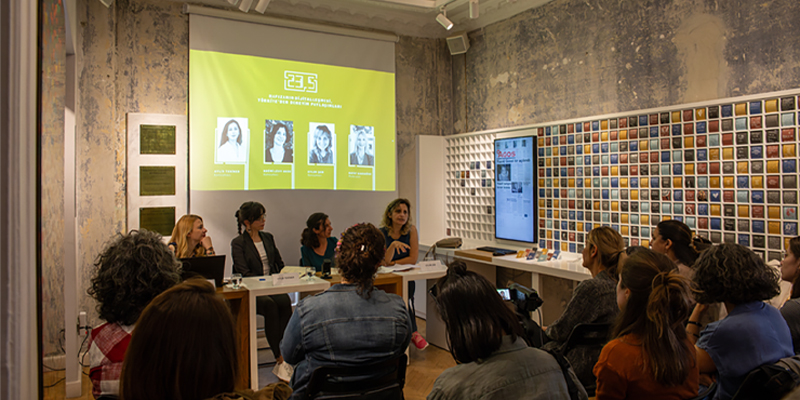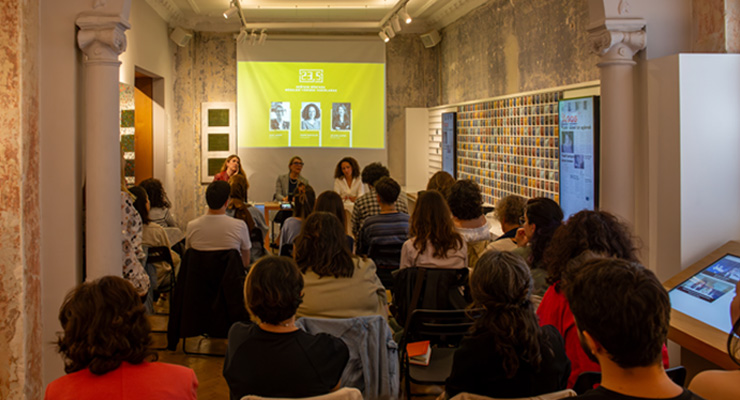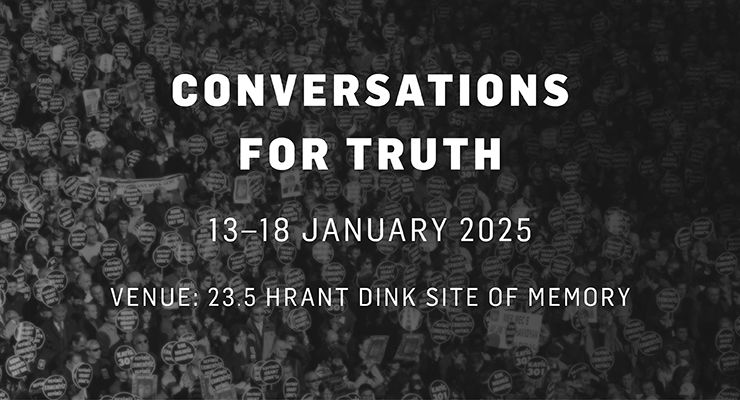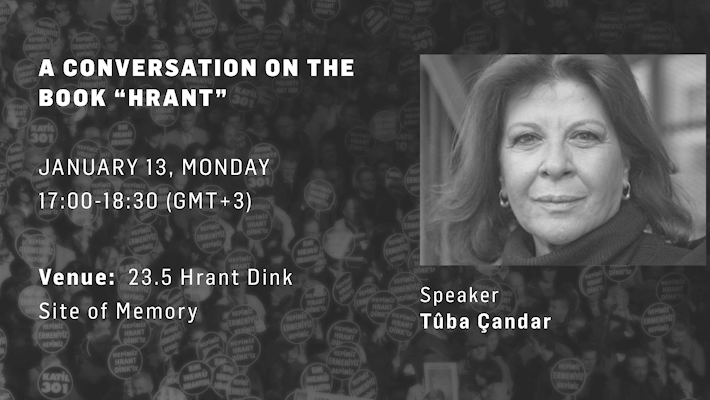On the occasion of the 18-24 May Museum Week, on 22 May 2024, 23,5 Hrant Dink Site of Memory hosted a talk about digital museums, digital memorialization and the importance of sharing documentation online.
In the talk moderated by Nayat Karaköse, Aylin Tekiner from the Memory Museum for Historical Justice, Noémi Lévy-Aksu from the Truth Justice Memory Center and Eylem Şen from the Madımak Massacre Memorial Centre discussed the potential and importance of virtual/digital museums, the transfer of memory and truth to new generations through online projects, and the opportunities offered by digitalization.
Noémi Lévy-Aksu pointed out that the virtualization of memory studies in Turkey is a reflection of the global trend of digitalization in the fields of academia, civil society and art, and that the virtualization of memory is not only a response to the impossibility of visibility in public spaces in recent years, but also an important transformation to overcome the lack of reliable and accessible databases. Noémi Lévy-Aksu noted that most of the memory projects carried out in the last 5 years have been digital projects, and emphasized that moving memory and archival work into the digital sphere is an effective alternative for bringing together different generations, reaching different audiences, and for academic studies whose freedom is increasingly restricted. Noemi Levy-Aksu elaborated on the projects carried out by Memory Centre in which various sources are brought together to create a new narrative by making them talk to each other, and shared that they work to create a narrative beyond names through oral history studies, which are against narratives that are reduced to names and statistics. Noemi Levy-Aksu added that when determining how to present the ongoing quest for justice in the process of memorialization, they did not look at the quest for justice from above or from themselves, but tried to determine what justice the families and relatives of those killed demanded. Noemi explained that since universities in Turkey have lost their place as spaces for free and critical thinking under political pressure, Memory Centre prioritized the need to open alternative spaces and started the Memory and Youth project to involve young people in the process of revitalizing the field of memory by identifying young people as the primary target audience.
Aylin Tekiner, who carries out archive and memorialization work on the September 12, 1980 coup at the Museum of Memory for Historical Justice, stated that digitalization provides a suitable environment for creating a holistic counter-narrative and facilitates organizing in contexts where the political climate is not conducive to achieving historical justice and creating a physical memory space. Aylin Tekiner underlined that creating meaningful and coherent narratives from different types of documents with the help of various tools is one of the biggest advantages of the virtual environment in the field of memorialization. Aylin Tekiner identified the interconnection of collections with metadata as another one of the greatest advantages of the digital space and presented the digital torture map they created as an example of the success of new technologies in filtering information from documents and creating a coherent narrative. Aylin Tekiner talked about the access difficulties caused by the archive being a political issue in Turkey, noting that this access barrier prevents the deep-rooted, powerful and persistent chain of violence in Turkey's history from being evaluated as a whole and prevents a complete analysis of both today's social space and the social space that is desired to be memorialized. Emphasizing that it is possible to introduce the younger generation to the historicity and the state mechanism that created the present by creating a counter-memory, Aylin Tekiner praised the young generation's mastery of technology and their motivation to get information and find documents, and shared her recommendation that memory sites should be digitized by taking into account the motivations of young people.
Eylem Şen stated that the virtual environment is a suitable platform for collecting, documenting and perpetuating testimonies in situations where spatial confrontation is not allowed to take place, such as in the Madımak Hotel where the Madımak Massacre took place, and defined digital platforms as an opportunity that can spread more to younger generations from all over the world. Eylem Şen shared that in their work to reconstruct the Madımak Hotel in a virtual environment, they created a room for each person who lost their lives there that day, and thanks to the space opened up by digitalization, spaces were created to remember the stories and hopes of the 33 people who were lost. Noting that the process of collecting documents for the digital museum progressed by establishing and rebuilding relationships with families, Eylem Şen said that the digitization process is a way of reuniting with those whose conscience is wounded and remembering the wounds inflicted by the mass violence that finds us in everyday life. Drawing attention to the importance of the archive, Eylem Şen shared that creating an archive in the field of memory requires emotional intelligence and strong empathy, and noted that women are more active in carrying and transmitting social memory. At the end of her speech, Eylem Şen expressed her hopes that the digital museum and digitalization will open up new spaces for opening new channels of dialogue with the vast masses who do not hold themselves responsible for the Madımak Massacre and the “other”, and for discussing the sociality of the massacre.




